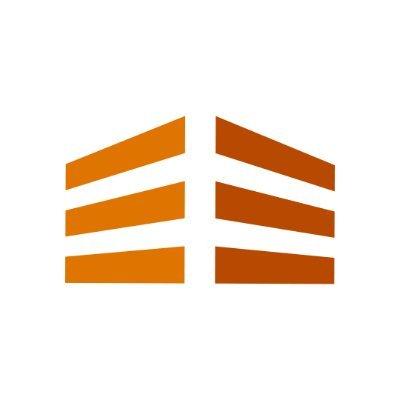Invest in commercial real estate projects
Invest in real estate loans
Investments
$25,000
Minimum investment amounts on CrowdStreet start at $25,000, with the exact threshold varying by individual project.
Investments
$10
Groundfloor enables individuals to begin investing in real estate with a minimal initial requirement of only $10.
Moderate Risk
3/5
Investing via CrowdStreet entails typical real estate risks such as market fluctuations and property-specific issues, with no guarantee of returns and potential for capital loss.
Moderate Risk
3/5
Investing on Groundfloor involves credit risk from borrower default, market risk due to real estate market fluctuations, liquidity risk as investments are tied up until loan maturity without a secondary market for early exit, regulatory risk from changes in laws affecting real estate and crowdfunding, and platform risk related to operational disruptions or cybersecurity threats.
Minimum Liquidity
1/5
CrowdStreet investments are generally illiquid, with capital committed for several years until a potential liquidity event, such as a property sale or refinancing, without a secondary market for early exit.
Minimum Liquidity
1/5
On Groundfloor, liquidity is tied to the term of the real estate loans, which range from 6 to 18 months. Investors' funds are committed until the loan matures and the borrower repays.
Receive new reviews from Fintorial
High Return
17.9 %
CrowdStreet has a historical 17.9% Realized IRR and a typical 3.1-year hold period for investments, with returns varying based on equity shares, debt interest, or hybrid terms, and property sales.
Moderate Return
10.72 %
Groundfloor's loans are graded from A to G, with interest rates ranging from 5.5% to 25.5% annually, based on risk. A diversified portfolio across all repaid loans to date would have earned a 10.72% annualized net return.
Long-term Investment
3-10 years
CrowdStreet investments typically have a hold period of 3.1 years on average, with some ranging from 3-5 years and others up to 10 years, reflecting a long-term investment horizon.
Short-term Investment
6+ months
Groundfloor investments have loan terms ranging from 6 to 18 months.
Who can invest
United States
Individuals must be accredited U.S. residents with valid identification to invest on CrowdStreet, while entities need U.S. accreditation, taxation, and verification, subject to CrowdStreet's approval.
Who can invest
International
Groundfloor is accessible to investors both in the US and internationally. However, for non-US investors, a minimum transfer-in amount of $5,000 is required.
Moderate Volatility
3/5
Assets on CrowdStreet may experience volatility due to economic shifts, interest rate changes, and local market trends, affecting property values and investment returns.
Moderate Volatility
3/5
The assets on Groundfloor, which are short-term real estate loans, generally exhibit lower volatility compared to stocks, as their value is more closely tied to specific real estate projects and less to daily market swings.
Regulation and audits
SEC Regulated
CrowdStreet's offerings are regulated by the SEC and subject to regular audits for compliance, ensuring adherence to legal standards for securities and real estate investments. However, details on specific audits and regulations are not publicly disclosed.
Regulation and audits
SEC Regulated
Groundfloor offers securities under Regulation A of the Securities Act of 1933, allowing it to sell securities to residents in states where it's qualified or announced its intent under Regulation A's Tier 1 or Tier 2.
Insurance
Yes
CrowdStreet's properties are typically insured against physical damage, but this does not cover market risks or guarantee full property value protection. Investors should note that insurance mitigates, but doesn't eliminate, all investment risks.
Insurance
No
Investments on Groundfloor are not insured by any government agency such as the FDIC or SIPC, nor are they guaranteed by Groundfloor. This means investors fully assume the risk of borrower default or project failure, without any insurance safety net.
Payouts
Dividends
CrowdStreet investors may receive distributions, typically on a quarterly basis, based on the cash flow and profitability of their investments, but these are not guaranteed and depend on the specifics of each project.
Payouts
Interest
Groundfloor pays interest on funded loans. Interest accrues from the investment date until the loan is repaid. Loans may have monthly or deferred payment terms, with monthly interest payments processed once a month and lump sum repayments for deferred loans.
Withdrawals
Investors on CrowdStreet typically receive their money back after a liquidity event like a property sale, based on the timeline of the specific project's business plan. Real estate investments are illiquid, so funds cannot be withdrawn on demand.
Withdrawals
Investors on Groundfloor get their money back, including principal and accrued interest, once the borrower repays the loan, typically within 6 to 18 months. Repayments are processed within 7 days, with funds made available in the investor's dashboard for withdrawal or reinvestment.
Extra Fees
Yes
CrowdStreet investments may include sponsor-determined fees such as acquisition, asset management, and property management fees, along with performance-based carried interest.
Extra Fees
No
Investors on Groundfloor pay no fees. Instead, borrowers are charged an underwriting fee by Groundfloor, ranging from 2% to 4.5% of the loan's principal amount.
Taxes
Tax Form
CrowdStreet issues Form K-1 or other relevant tax documents to investors for annual tax reporting, with the advice to consult a tax advisor for proper tax treatment of investments.
Taxes
Tax Form
Groundfloor provides tax support by issuing a 1099-INT form for interest income over $10, a 1099-B for principal losses, and a 1099-MISC for promotional credits over $600.

